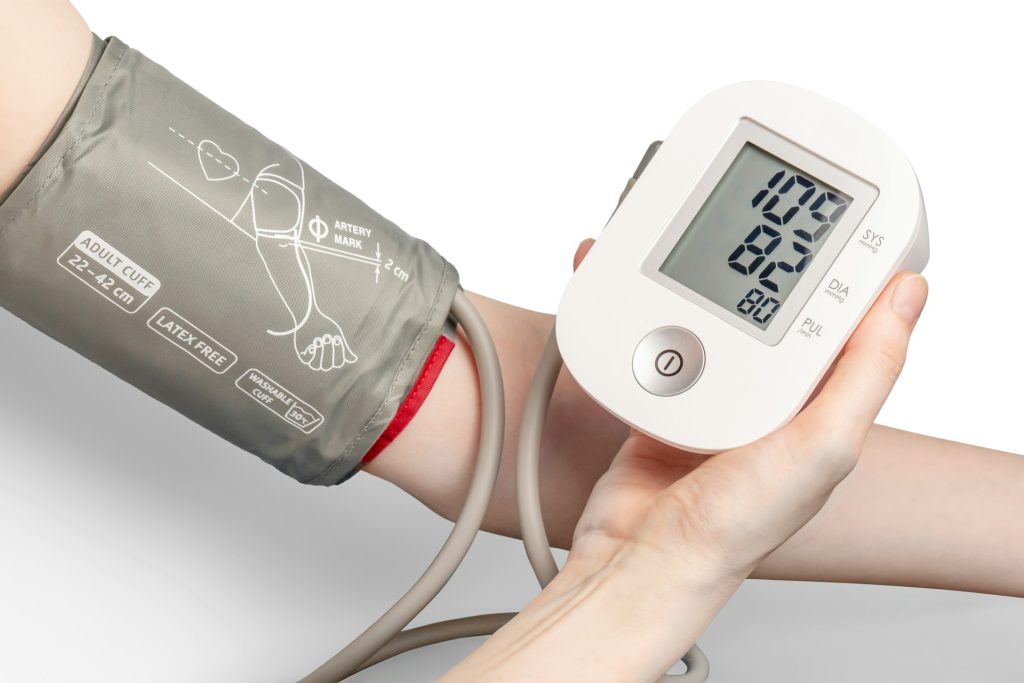When it comes to managing your health, understanding your Medicare coverage options for blood pressure monitors is crucial. Medicare does not typically cover home blood pressure monitors, but there are specific situations where you may receive coverage. For instance, if your doctor orders ambulatory blood pressure monitoring or if you’re receiving kidney dialysis at home, you might qualify for coverage.
Navigating Medicare can be complex, especially when it comes to devices like blood pressure monitors. That’s where The Modern Medicare Agency comes in. Our licensed agents are here to help you find Medicare packages that fit your needs without any hidden fees. You deserve personalized assistance, and with our one-on-one consultations, you can confidently make informed decisions about your health care.
By understanding your Medicare coverage and working with The Modern Medicare Agency, you can ensure you are taking the right steps to monitor your blood pressure effectively. Don’t miss out on essential health tools that could support your well-being.
Medicare Basics and Coverage for Blood Pressure Monitoring
Understanding Medicare’s structure and its coverage options for blood pressure monitoring can significantly impact your health management. Familiarizing yourself with the different parts of Medicare and the eligibility criteria will help you navigate the benefits effectively.
Understanding Medicare Parts and Blood Pressure Monitoring Coverage
Medicare is divided into several parts: Part A, B, C, and D. For blood pressure monitoring, Medicare Part B is particularly relevant. It covers outpatient services, including diagnostic tests like ambulatory blood pressure monitoring (ABPM). This non-invasive procedure allows doctors to assess your blood pressure over a 24-hour period.
Blood pressure monitors may qualify as Durable Medical Equipment (DME) under Part B, which means coverage can extend to necessary equipment prescribed by your physician. Associated services, such as calibration and professional guidance on monitor usage, may also be eligible for coverage. Understanding these distinctions ensures you make the most of your Medicare benefits, especially when it comes to preventive care.
Eligibility Criteria for Blood Pressure Monitor Coverage Under Medicare
To qualify for coverage of blood pressure monitoring devices, specific eligibility criteria must be met. You should have a diagnosis indicating the need for continuous monitoring or have experienced elevated readings in clinical settings. A doctor’s order is essential; without it, coverage is unlikely.
For recipients of Medicare Advantage Plans (Part C), benefits can vary, so it’s crucial to check the specifics of your plan. If the ABPM is deemed necessary by your healthcare provider, it may be covered, but this varies across plans. Engaging with The Modern Medicare Agency ensures you receive personalized assistance, as our licensed agents are available to help you find plans tailored to your needs, without hidden costs.
Types of Blood Pressure Monitors Covered by Medicare
Medicare provides coverage for specific types of blood pressure monitors, primarily focusing on home and ambulatory devices. Understanding these options can help you determine the most suitable solution for your needs.
Home Blood Pressure Monitors and Medicare Reimbursement
Medicare typically covers home blood pressure monitors under certain conditions. These devices must meet the criteria for Durable Medical Equipment (DME). Coverage often depends on whether your doctor prescribes the monitor due to concerns about your blood pressure.
To qualify for reimbursement, it’s essential that the equipment assists in managing your health. The Medicare-approved amount will vary, impacting how much you pay out of pocket. If you choose a monitor that meets Medicare requirements, you may have options to receive partial reimbursement.
Ambulatory Blood Pressure Monitoring (ABPM) Devices
Ambulatory Blood Pressure Monitors (ABPM) are often covered by Medicare for specific diagnostic purposes. These devices are used to record your blood pressure at regular intervals throughout the day and night, typically for a 24-hour period.
ABPM can be particularly beneficial if your doctor needs to assess your blood pressure variability or confirm consistent hypertension. Coverage is available if the monitor is prescribed by a doctor and used once a year. Medicare will reimburse you for the various components of ABPM, including the blood pressure cuff and the recording device.
Choosing the right coverage options can be complex. The Modern Medicare Agency can assist you by personalizing your Medicare plan to fit your needs. Our licensed agents are real people available for 1-on-1 consultations, ensuring you find the best packages without incurring unnecessary fees.
The Prescription Process and Medicare Coverage
Navigating the prescription process for blood pressure monitors through Medicare is crucial for obtaining the right equipment. Understanding how to secure a prescription and identify Medicare-approved suppliers will help you manage your health effectively.
How to Obtain a Prescription for a Medicare-Covered Blood Pressure Monitor
To receive a Medicare-covered blood pressure monitor, you need a prescription from a healthcare provider. Schedule an appointment with your doctor to discuss your blood pressure management. Bring up any concerns, especially if you experience white coat hypertension or masked hypertension, as these conditions may necessitate monitoring outside the clinic.
Your doctor may evaluate your blood pressure history and decide if a home monitor is appropriate. Once approved, request a prescription note specifying the type of blood pressure monitor required. It’s important to ensure that the monitor meets Medicare’s criteria for coverage, which typically includes ambulatory devices for ongoing monitoring.
Finding Medicare-Approved Suppliers for Blood Pressure Equipment
After securing a prescription, the next step is to find a Medicare-approved supplier. Look for medical equipment suppliers that specifically list blood pressure monitors in their offerings. Suppliers in the Medicare program must adhere to specific guidelines, ensuring that the equipment meets safety and effectiveness standards.
You can visit the Medicare website or contact The Modern Medicare Agency for assistance in locating approved suppliers. Our licensed agents are real people ready to help you find the best options without extra fees that can strain your budget. Ensure you check the supplier’s credentials and confirm that they accept your Medicare plan to avoid unexpected costs.
Cost Considerations for Patients Under Medicare
Understanding the cost implications of blood pressure monitors under Medicare is crucial for managing your health expenses. This section will clarify key financial elements, including coinsurance, deductibles, and comparisons between Medicare options to help you make informed choices.
Understanding Coinsurance, Deductibles, and Out-of-Pocket Costs
Under Medicare Part B, you are responsible for a coinsurance charge of 20% for approved services after you meet your deductible. For 2025, the standard Part B deductible is set at $226. This means you’ll pay the full deductible amount before your coinsurance kicks in.
Out-of-pocket costs can increase based on your medical needs. For blood pressure monitors prescribed as medically necessary, it’s important to understand these costs. If you’re using a blood pressure monitor consistently, these charges can add up. Partnering with The Modern Medicare Agency can help you navigate these costs effectively and find suitable coverage options.
Comparing Costs Between Original Medicare and Medicare Advantage Plans
When weighing your options, it’s essential to compare costs between Original Medicare and Medicare Advantage plans. Original Medicare generally offers lower upfront costs, but you will face coinsurance and deductibles for services, including blood pressure monitors.
In contrast, Medicare Advantage plans often include extra benefits, which may reduce out-of-pocket costs. They might cover additional services but can come with different rules and payment structures. An agent from The Modern Medicare Agency can help you identify plans that meet your specific needs without hidden fees. This ensures you understand all aspects of your costs.
Managing Chronic Conditions with Blood Pressure Monitors
Monitoring blood pressure at home plays a critical role in managing chronic conditions, particularly hypertension and kidney disease. Understanding Medicare coverage options for these monitors can help you ensure proper health management.
Role of Home Blood Pressure Monitoring in Managing Hypertension
Home blood pressure monitoring is essential for anyone dealing with hypertension or high blood pressure. It allows you to track your blood pressure readings regularly, offering valuable data for your healthcare provider. This consistency helps identify patterns that may require adjustments in treatment or lifestyle.
For effective blood pressure management, consider these best practices:
- Choose a reliable monitor: Ensure it’s validated for accuracy.
- Take readings at the same time daily: This helps create reliable trends.
- Record your results: Keep a log to discuss with your doctor during visits.
Using a home monitor can enhance your control over hypertension, leading to better outcomes. Regular monitoring can motivate you to adhere to prescribed treatments and lifestyle changes.
Medicare Coverage Related to Kidney Disease and Blood Pressure Control
For individuals with chronic kidney disease, particularly those undergoing renal dialysis, blood pressure management becomes even more crucial. Medicare provides specific coverage for ambulatory blood pressure monitors under certain conditions.
You may qualify for coverage in the following situations:
- Ambulatory Blood Pressure Monitoring (ABPM): If your doctor prescribes this once-a-year monitor, Medicare can cover it. The device tracks blood pressure for 24 to 48 hours, providing comprehensive data.
- Home Dialysis Treatments: Blood pressure management is vital during home dialysis as fluctuations can occur. Correct monitoring helps prevent complications.
At The Modern Medicare Agency, our licensed agents can assist you in navigating these options. They offer personalized support without extra fees, ensuring you access the best Medicare packages tailored to your needs.






